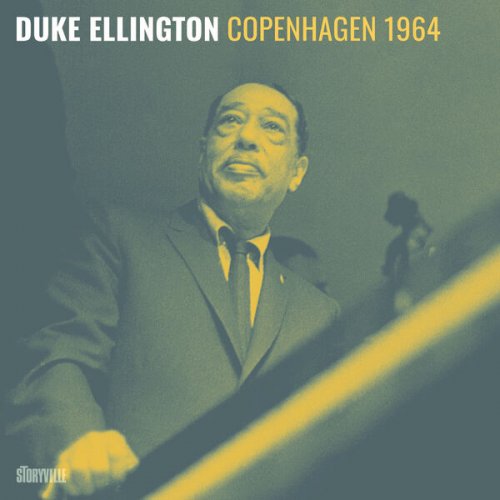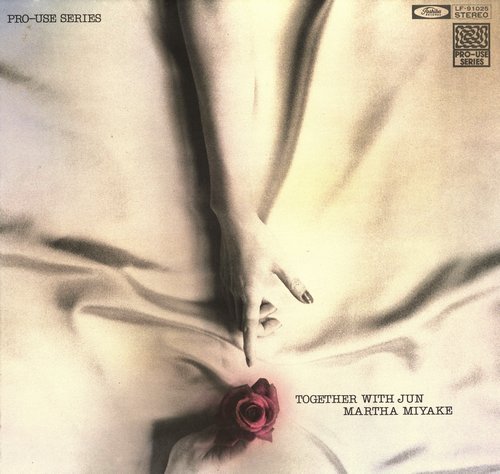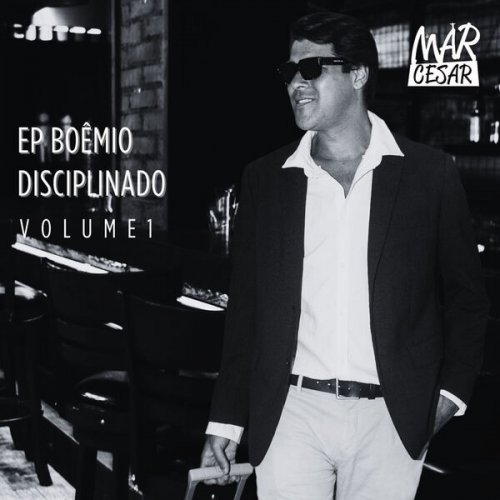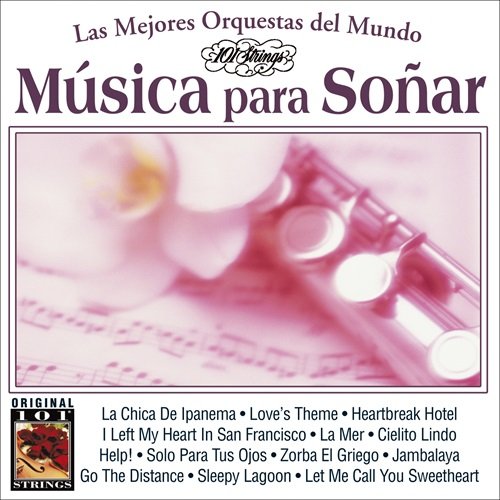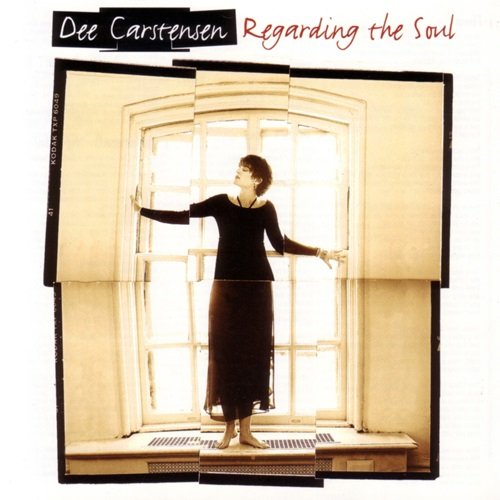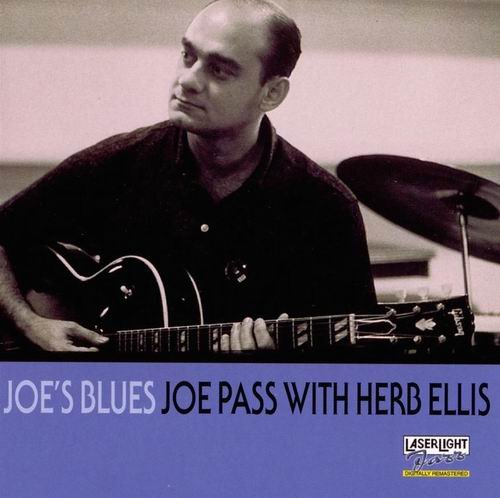Paul Tynan & Aaron Lington - Bicoastal Collective: Chapter Six (2023) Hi Res
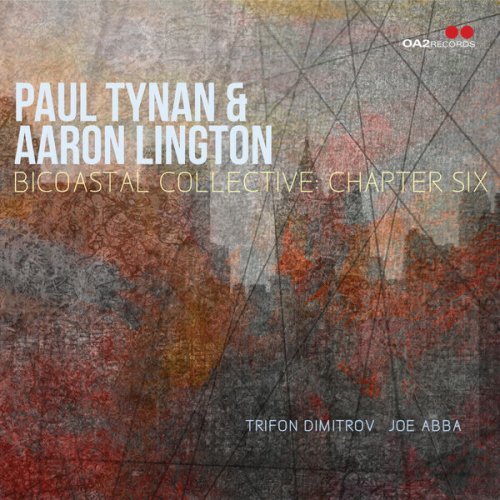
Artist: Paul Tynan, Aaron Lington
Title: Bicoastal Collective: Chapter Six
Year Of Release: 2023
Label: OA2 Records
Genre: Jazz
Quality: 320 kbps | FLAC (tracks) | 24Bit/96 kHz FLAC
Total Time: 00:39:56
Total Size: 94 mb | 271 mb | 872 mb
WebSite: Album Preview
Tracklist:Title: Bicoastal Collective: Chapter Six
Year Of Release: 2023
Label: OA2 Records
Genre: Jazz
Quality: 320 kbps | FLAC (tracks) | 24Bit/96 kHz FLAC
Total Time: 00:39:56
Total Size: 94 mb | 271 mb | 872 mb
WebSite: Album Preview
01. Paul Tynan, Aaron Lington, Joe Abba - By Iron and Fire
02. Paul Tynan, Aaron Lington, Joe Abba - Traveler from an Antique Land
03. Paul Tynan, Aaron Lington, Trifon Dimitrov, Joe Abba - Arbitrary Rules
04. Paul Tynan, Aaron Lington, Trifon Dimitrov - Angles
05. Paul Tynan, Aaron Lington, Joe Abba - Dark Halo
06. Paul Tynan, Aaron Lington, Trifon Dimitrov - Surrounded
If you ask yourself: What is the definition of meaningtul contemporary jazz? What do well-crafted jazz tunes played by stellar musicians sound like? How do you combine fresh music ideas with the heritage of jazz as we know it? How do you inject various harmonic layers into jazz compositions and still make it sound accessible? What's the definition of serious jazz with a playful attitude? The answer is: Paul Tynan & Aaron Lington's Bicoastal Collective.
From the first note the music of Paul & Aaron captures the listener's attention and doesn't let go. After every musical turn and thematic corner the listener discovers a new audible delight, which leaves them hungry for more harmonic stimulation until the album comes to a fulminant and gratifying musical conclusion. Bravo, maestros!
Paul Tynan and Aaron Lington, much like Keith Jarrett, Branford Marsalis, and his brother, Wynton, have had considerable success as jazz and classical musicians. Tynan's classical trumpet education began early, lasting through his undergraduate years when he first began playing jazz. His aspiration was to be hired as second trumpet for a symphony orchestra, emulating Gerry Soffer, his first important trumpet teacher, who served that role for the Buffalo Philharmonic. Subsequent apprenticeships with Detroit Symphony's Gordon Mathie and Stockholm Chamber Brass's Urban Agnas only solidified Tynan's resolve.
During that period, Tynan appeared as a soloist with brass quintets and wind ensembles. He also composed original symphonic and chamber music pieces. One was an extended piece for Bala Brass Quintet, which premiered at Tanglewood. Regarding his orchestral works, "I almost wanted them to sound like Prokofiev." said Tynan. "I love his textures... I really like that sound, and his real lush orchestrations. I try to use that as a model when I write for string orchestra."
Tynan also sang throughout grade school. A few ears later for a European tour, he was hired as a counter tenor to sing the boy soprano part in Leonard Bernstein's Chichester Psalms. By age twenty, however, it was necessary to commit to becoming a trumpeter or an opera singer. Ultimately, Tynan chose trumpet because he didn't feel at home in the opera world.
But which one: classical or jazz trumpet? He still had to choose his career path. Tim Hagans, another mentor, was especially pivotal. He told Tynan, "'One of the reasons why l do so well is because I play like I do. I have my own sound, and if people want it, they have to come to me to get it.' ... That was the moment when I decided," said Tynan. Struck by Hagans's point of view, and the appeal of developing an identity as an improviser, Tynan shifted his focus to jazz trumpet, and it's remained his bread and butter ever since.
As for Lington, he didn't start listening to jazz or take his saxophone to R&B gigs in his hometown of Houston, with its distinguished blues tradition, until his teens. Discounting piano while quite young, his first instrument was violin. "I played violin for almost twenty years... I was iust listening to frickin' Mahler, and Brahms, and all these great symphonic writers. In a way, as a saxophonist, there's always, at least for me, a little bit of sour grapes, of, 'Man, I want to play Brahms in a symphony on my saxophone' except you can't. There's some saxophone stuff written for symphony orchestra, but for a number of reasons there's not a lot of it. But I retain that passion of loving that music and loving things about it. So, when I get these commissions for these different pieces, I try to incorporate things that I like about classical pieces into some of the things that I've written."
Lington doesn't actively seek classical music commissions, but he's nonetheless received requests, such as reimagining Bach's Passacaglia in C Minor for a performance featuring saxophonist Joe Lovano; Quartet for Brass, commissioned by Humboldt Brass Chamber Music Workshop; March/Fanfare for San Francisco Conservatory Brass Choir; Like as the Waves, a choral piece based on Shakespeare's Sonnet LX; a setting of Robert Frost's poem Stopping by the Woods on a Snowy Evening for saxophone quartet and tenor vocalist; and other ambitious projects. All told, he's written two hundred arrangements, including those for Maynard Ferguson and Tommy goe's big bands, Taipei and Taichung Jazz Orchestras, and for University of Houston. "Once in a While," his arrangement for the Count Basie Orchestra, appeared on their Grammy nominated recording Live at Birdland, and Lington took home a Grammy for charts he wrote for Pacific Mambo Orchestra.
Lington earned a PhD in classical saxophone, as did his mentor, Woody Witt. Yet, as you'll hear, Lington can also tear it up on the bari with the best of them. Recently, he's made a name for himself by revolutionizing altissimo playing. His four-part, overdubbed Bach Chorales, featured on YouTube, for example, showcase his extraordinary technique, in which, as smoothly as butter, he's extended the baritone's range well past its customary two-and-a-half octaves. "I continue to try to incorporate that into part of my playing," said Lington. "Not a lot of bari players do that. Even when I'm improvising, I work-in [altissimo] lines. I've never been a fan of the random high note and then back into the normal range. Because, to me, that's not really using the altissimo as another register of the horn. That's almost using it as an effect."
Apart from Tynan and Lington's impeccable credentials, and the fact that both are master jazz players, they also possess wide-ranging taste. "It's all about staying diverse, staying curious, and just doing the very best I can, trying to get a little better each day," said Lington. In their five previous Bicoastal Collective projects, they've recorded original suites for tentet and big band, a hard-grooving B3 organ date, a quintet session in which they recrafted traditional folk melodies, and a harmonically provocative sextet date with Fender Rhodes. Upcoming is a project for jazz band and symphonic orchestra.
As Tynan told me, "With all the rest of the Bicoastal projects, Aaron and I try to do something different for each one. This time, we kind of wanted to explore one of the traditional baritone and trumpet instrumentations: That's bass, drums, baritone, and trumpet... But, at the same time, we wanted to go with a 'new wine, old bottle' situation and kind of think about the music from a different perspective."
The genesis was really Paul's idea. When the two were brainstorming about BC6, Tynan said, "Let's do no guitar [or] piano, but let's not try to recreate Mulligan/Art Farmer, the pianoless quartet things where there's long strings of counterpoint. Let's not do that, but let's do something like Bitches Brew." The end result was a melange of traditional jazz instrumentation with that unique, late-sixties, Miles Davis sonic approach.
In addition to keeping the music harmonically open, "we played around with a lot of different textures: pedals and effects," said Tynan. There are "some tracks where Aaron, or I, or at times both, take on the role of the comping instrument, so, we'd be playing support figures behind the other soloists, which is something that you don't hear that often." Inspired by Kenny Wheeler, who employed overdubbing on his recordings, Tynan wrote four additional horn parts for one of his tunes that were later added in the studio. "It's kind of like a little big band, just the horns, providing some background figures," said Lington.
As with BC1 through BC5, Tynan and Lington split compositional duties for BC6. Lington's "Angles," "Dark Halo," and "Surrounded" is "much more harmonically rooted and melodically driven, while my submission for this particular record ["Arbitrary Rules," "By Iron and Fire," "Traveler from an Antique Land"] tended to be more rhythmic and textural," said Tynan.
"I've had people ask me this before," said Lington. "They'll say, 'Man, great record! How come you didn't record a standard on it?...' I like playing "Stella by Starlight" a lot! But I don't want to record it... I want to record my own music." Bravissimo! Considering their entrepreneurial grit and fealty to their artistic vision, you can bet that Tynan and Lington will continue to morph stylistically for as long as Bicoastal Collective stays at it.
From the first note the music of Paul & Aaron captures the listener's attention and doesn't let go. After every musical turn and thematic corner the listener discovers a new audible delight, which leaves them hungry for more harmonic stimulation until the album comes to a fulminant and gratifying musical conclusion. Bravo, maestros!
Paul Tynan and Aaron Lington, much like Keith Jarrett, Branford Marsalis, and his brother, Wynton, have had considerable success as jazz and classical musicians. Tynan's classical trumpet education began early, lasting through his undergraduate years when he first began playing jazz. His aspiration was to be hired as second trumpet for a symphony orchestra, emulating Gerry Soffer, his first important trumpet teacher, who served that role for the Buffalo Philharmonic. Subsequent apprenticeships with Detroit Symphony's Gordon Mathie and Stockholm Chamber Brass's Urban Agnas only solidified Tynan's resolve.
During that period, Tynan appeared as a soloist with brass quintets and wind ensembles. He also composed original symphonic and chamber music pieces. One was an extended piece for Bala Brass Quintet, which premiered at Tanglewood. Regarding his orchestral works, "I almost wanted them to sound like Prokofiev." said Tynan. "I love his textures... I really like that sound, and his real lush orchestrations. I try to use that as a model when I write for string orchestra."
Tynan also sang throughout grade school. A few ears later for a European tour, he was hired as a counter tenor to sing the boy soprano part in Leonard Bernstein's Chichester Psalms. By age twenty, however, it was necessary to commit to becoming a trumpeter or an opera singer. Ultimately, Tynan chose trumpet because he didn't feel at home in the opera world.
But which one: classical or jazz trumpet? He still had to choose his career path. Tim Hagans, another mentor, was especially pivotal. He told Tynan, "'One of the reasons why l do so well is because I play like I do. I have my own sound, and if people want it, they have to come to me to get it.' ... That was the moment when I decided," said Tynan. Struck by Hagans's point of view, and the appeal of developing an identity as an improviser, Tynan shifted his focus to jazz trumpet, and it's remained his bread and butter ever since.
As for Lington, he didn't start listening to jazz or take his saxophone to R&B gigs in his hometown of Houston, with its distinguished blues tradition, until his teens. Discounting piano while quite young, his first instrument was violin. "I played violin for almost twenty years... I was iust listening to frickin' Mahler, and Brahms, and all these great symphonic writers. In a way, as a saxophonist, there's always, at least for me, a little bit of sour grapes, of, 'Man, I want to play Brahms in a symphony on my saxophone' except you can't. There's some saxophone stuff written for symphony orchestra, but for a number of reasons there's not a lot of it. But I retain that passion of loving that music and loving things about it. So, when I get these commissions for these different pieces, I try to incorporate things that I like about classical pieces into some of the things that I've written."
Lington doesn't actively seek classical music commissions, but he's nonetheless received requests, such as reimagining Bach's Passacaglia in C Minor for a performance featuring saxophonist Joe Lovano; Quartet for Brass, commissioned by Humboldt Brass Chamber Music Workshop; March/Fanfare for San Francisco Conservatory Brass Choir; Like as the Waves, a choral piece based on Shakespeare's Sonnet LX; a setting of Robert Frost's poem Stopping by the Woods on a Snowy Evening for saxophone quartet and tenor vocalist; and other ambitious projects. All told, he's written two hundred arrangements, including those for Maynard Ferguson and Tommy goe's big bands, Taipei and Taichung Jazz Orchestras, and for University of Houston. "Once in a While," his arrangement for the Count Basie Orchestra, appeared on their Grammy nominated recording Live at Birdland, and Lington took home a Grammy for charts he wrote for Pacific Mambo Orchestra.
Lington earned a PhD in classical saxophone, as did his mentor, Woody Witt. Yet, as you'll hear, Lington can also tear it up on the bari with the best of them. Recently, he's made a name for himself by revolutionizing altissimo playing. His four-part, overdubbed Bach Chorales, featured on YouTube, for example, showcase his extraordinary technique, in which, as smoothly as butter, he's extended the baritone's range well past its customary two-and-a-half octaves. "I continue to try to incorporate that into part of my playing," said Lington. "Not a lot of bari players do that. Even when I'm improvising, I work-in [altissimo] lines. I've never been a fan of the random high note and then back into the normal range. Because, to me, that's not really using the altissimo as another register of the horn. That's almost using it as an effect."
Apart from Tynan and Lington's impeccable credentials, and the fact that both are master jazz players, they also possess wide-ranging taste. "It's all about staying diverse, staying curious, and just doing the very best I can, trying to get a little better each day," said Lington. In their five previous Bicoastal Collective projects, they've recorded original suites for tentet and big band, a hard-grooving B3 organ date, a quintet session in which they recrafted traditional folk melodies, and a harmonically provocative sextet date with Fender Rhodes. Upcoming is a project for jazz band and symphonic orchestra.
As Tynan told me, "With all the rest of the Bicoastal projects, Aaron and I try to do something different for each one. This time, we kind of wanted to explore one of the traditional baritone and trumpet instrumentations: That's bass, drums, baritone, and trumpet... But, at the same time, we wanted to go with a 'new wine, old bottle' situation and kind of think about the music from a different perspective."
The genesis was really Paul's idea. When the two were brainstorming about BC6, Tynan said, "Let's do no guitar [or] piano, but let's not try to recreate Mulligan/Art Farmer, the pianoless quartet things where there's long strings of counterpoint. Let's not do that, but let's do something like Bitches Brew." The end result was a melange of traditional jazz instrumentation with that unique, late-sixties, Miles Davis sonic approach.
In addition to keeping the music harmonically open, "we played around with a lot of different textures: pedals and effects," said Tynan. There are "some tracks where Aaron, or I, or at times both, take on the role of the comping instrument, so, we'd be playing support figures behind the other soloists, which is something that you don't hear that often." Inspired by Kenny Wheeler, who employed overdubbing on his recordings, Tynan wrote four additional horn parts for one of his tunes that were later added in the studio. "It's kind of like a little big band, just the horns, providing some background figures," said Lington.
As with BC1 through BC5, Tynan and Lington split compositional duties for BC6. Lington's "Angles," "Dark Halo," and "Surrounded" is "much more harmonically rooted and melodically driven, while my submission for this particular record ["Arbitrary Rules," "By Iron and Fire," "Traveler from an Antique Land"] tended to be more rhythmic and textural," said Tynan.
"I've had people ask me this before," said Lington. "They'll say, 'Man, great record! How come you didn't record a standard on it?...' I like playing "Stella by Starlight" a lot! But I don't want to record it... I want to record my own music." Bravissimo! Considering their entrepreneurial grit and fealty to their artistic vision, you can bet that Tynan and Lington will continue to morph stylistically for as long as Bicoastal Collective stays at it.

![Miles Davis - Kind Of Blue (1959) [2022 DSD256] Miles Davis - Kind Of Blue (1959) [2022 DSD256]](https://www.dibpic.com/uploads/posts/2026-02/1770649861_front.jpg)
